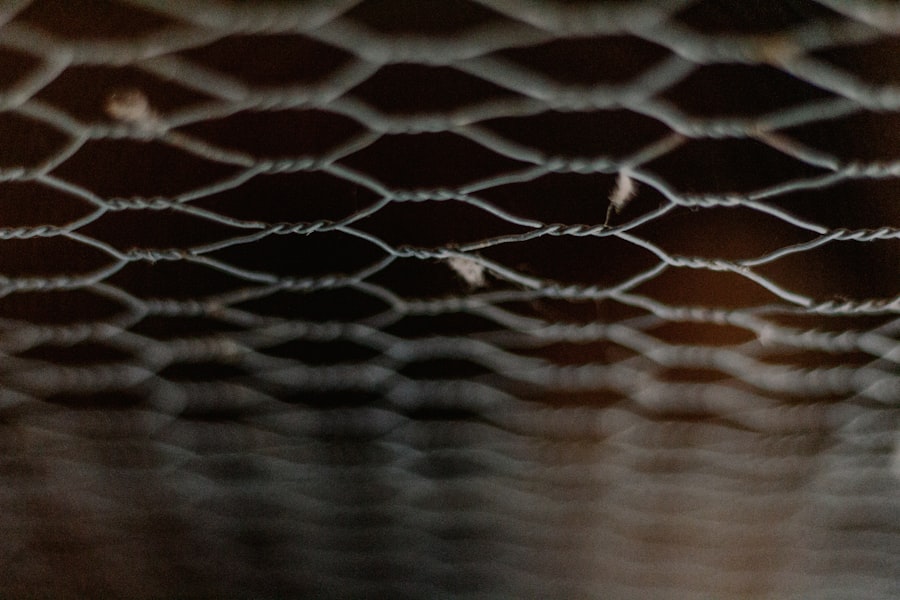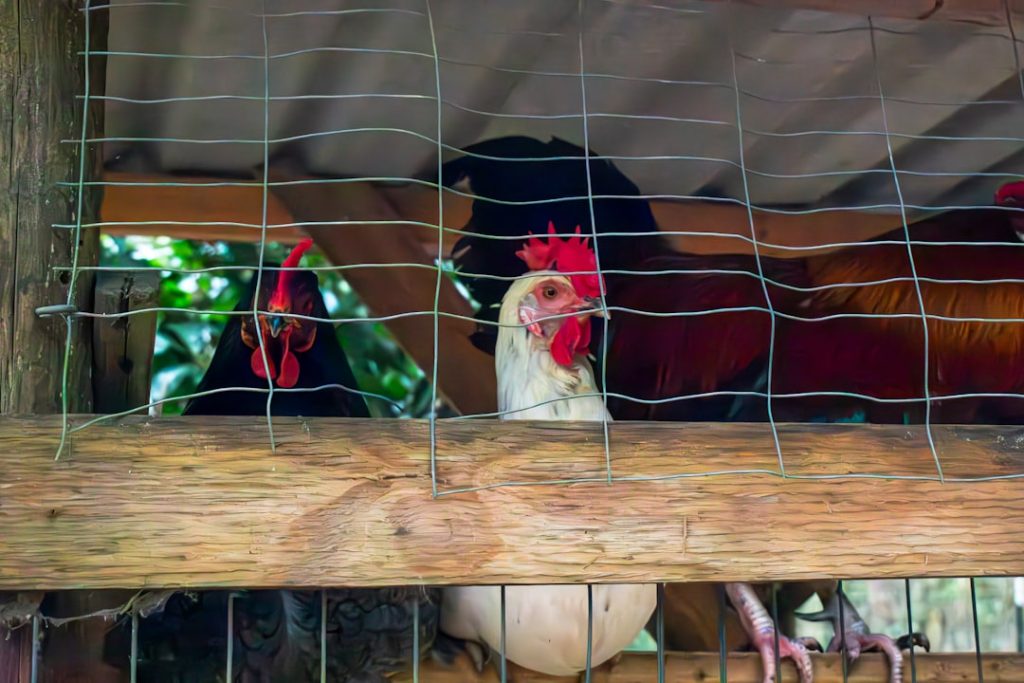Chickens in residential yards can be problematic for several reasons, including property damage, noise disturbances, and potential health risks. Understanding the factors that attract chickens to a yard is essential for developing effective solutions to deter them. Common reasons for chicken presence in yards include:
1.
Food sources: Open garbage cans, spilled birdseed, and accessible pet food can attract chickens. 2. Water sources: Standing water and leaky faucets provide hydration for chickens.
3. Shelter: Open sheds, barns, or other structures offer safe and warm roosting places. 4.
Feral chicken populations: In areas with high numbers of feral chickens, they may naturally wander into yards seeking food and shelter. By identifying and addressing these attractants, property owners can reduce the likelihood of chickens frequenting their yards. Implementing measures to eliminate or secure food and water sources, as well as limiting access to potential shelter, can effectively deter chickens from returning to the property.
Table of Contents
- 1 Creating Physical Barriers: Fencing and Other Deterrents
- 2 Implementing Scare Tactics: Using Visual and Auditory Deterrents
- 3 Removing Attractants: Keeping Food and Water Sources Secure
- 4 Utilizing Natural Repellents: Planting Vegetation and Using Scents
- 5 Encouraging Predators: Attracting Natural Enemies of Chickens
- 6 Seeking Legal Recourse: Understanding Local Regulations and Seeking Assistance
- 7 FAQs
- 7.1 What are some effective ways to keep chickens out of your yard?
- 7.2 Why is it important to keep chickens out of your yard?
- 7.3 What are some natural deterrents to keep chickens out of your yard?
- 7.4 How can I protect my garden from chickens?
- 7.5 Are there any legal restrictions on keeping chickens out of your yard?
Key Takeaways
- Chickens in your yard can be attracted by food, water, and shelter, so it’s important to identify and address these reasons.
- Fencing and other physical barriers can help keep chickens out of your yard and garden.
- Visual and auditory deterrents, such as scarecrows and noise-making devices, can help keep chickens away from your property.
- Keeping food and water sources secure can help prevent chickens from being attracted to your yard.
- Planting certain vegetation and using scents can act as natural repellents to keep chickens away from your property.
Creating Physical Barriers: Fencing and Other Deterrents
Fencing and Enclosure
One of the most effective ways to keep chickens out of your yard is by creating physical barriers. Installing a fence around your property can prevent them from entering. The fence should be at least six feet tall and buried at least six inches into the ground to prevent chickens from digging underneath it.
Sealing Gaps and Openings
Additionally, you can use chicken wire or hardware cloth to cover any openings or gaps in existing fences to prevent chickens from squeezing through. This can be an effective way to reinforce your existing fencing and keep chickens out.
Other Physical Barriers
Another physical barrier that can be effective is using motion-activated sprinklers or noise devices. These can startle and deter chickens from entering your yard. You can also use netting or mesh to cover any areas where chickens may be roosting or nesting, such as under decks or in trees.
Implementing Scare Tactics: Using Visual and Auditory Deterrents

Scare tactics can be an effective way to deter chickens from your yard. Visual deterrents such as scarecrows, reflective tape, or balloons with eyes painted on them can startle and discourage chickens from entering your property. Additionally, hanging shiny objects like CDs or aluminum foil strips can create a visual deterrent that will make chickens think twice about entering your yard.
Auditory deterrents can also be effective in scaring off chickens. You can use noise-making devices such as wind chimes, bells, or even a radio set to a talk station at a low volume to create a constant background noise that will make chickens uncomfortable and less likely to stick around. Implementing scare tactics using visual and auditory deterrents can be an effective way to deter chickens from your yard.
Visual deterrents such as scarecrows, reflective tape, or balloons with eyes painted on them can startle and discourage chickens from entering your property. Additionally, hanging shiny objects like CDs or aluminum foil strips can create a visual deterrent that will make chickens think twice about entering your yard. Auditory deterrents can also be effective in scaring off chickens.
You can use noise-making devices such as wind chimes, bells, or even a radio set to a talk station at a low volume to create a constant background noise that will make chickens uncomfortable and less likely to stick around.
Removing Attractants: Keeping Food and Water Sources Secure
Removing attractants is an important step in deterring chickens from your yard. This means keeping food and water sources secure and out of reach of chickens. Make sure to keep garbage cans tightly sealed and clean up any spilled birdseed or pet food promptly.
Additionally, repair any leaky faucets and eliminate any standing water sources that may attract chickens. If you have fruit trees or vegetable gardens, make sure to pick up fallen fruit and vegetables regularly to prevent them from becoming a food source for chickens. Keeping these attractants secure will help reduce the likelihood of chickens being drawn to your yard.
Removing attractants is an important step in deterring chickens from your yard. This means keeping food and water sources secure and out of reach of chickens. Make sure to keep garbage cans tightly sealed and clean up any spilled birdseed or pet food promptly.
Additionally, repair any leaky faucets and eliminate any standing water sources that may attract chickens. If you have fruit trees or vegetable gardens, make sure to pick up fallen fruit and vegetables regularly to prevent them from becoming a food source for chickens. Keeping these attractants secure will help reduce the likelihood of chickens being drawn to your yard.
Utilizing Natural Repellents: Planting Vegetation and Using Scents
Utilizing natural repellents can be an effective way to deter chickens from your yard. Planting vegetation that is unappealing to chickens, such as prickly bushes or thorny shrubs, can create a natural barrier that will discourage them from entering your property. Additionally, using strong-smelling plants such as lavender, mint, or rosemary can help mask the scent of food sources and make your yard less attractive to chickens.
You can also use scents such as citrus peels, garlic cloves, or vinegar around the perimeter of your yard to create a natural deterrent for chickens. These strong-smelling substances can help mask the scent of food sources and make your yard less appealing to chickens. Utilizing natural repellents such as planting vegetation that is unappealing to chickens, such as prickly bushes or thorny shrubs, can create a natural barrier that will discourage them from entering your property.
Additionally, using strong-smelling plants such as lavender, mint, or rosemary can help mask the scent of food sources and make your yard less attractive to chickens. You can also use scents such as citrus peels, garlic cloves, or vinegar around the perimeter of your yard to create a natural deterrent for chickens. These strong-smelling substances can help mask the scent of food sources and make your yard less appealing to chickens.
Encouraging Predators: Attracting Natural Enemies of Chickens

Attracting Aerial Predators
Installing bird feeders or bat houses can attract natural predators such as hawks, owls, and bats that will help keep chicken populations in check.
Creating Habitat for Ground-Dwelling Predators
Creating habitat for snakes or other ground-dwelling predators can also help reduce the likelihood of chickens being attracted to your yard.
A Holistic Approach to Chicken Deterrent
By combining these methods, you can create a holistic approach to deterring chickens from your yard. By attracting aerial predators and creating habitat for ground-dwelling predators, you can effectively keep chicken populations under control.
Seeking Legal Recourse: Understanding Local Regulations and Seeking Assistance
If all else fails, seeking legal recourse may be necessary in deterring chickens from your yard. Understanding local regulations regarding keeping poultry on residential properties is important in finding a solution to the problem. Many municipalities have ordinances that prohibit keeping poultry within city limits or have specific regulations regarding coop size and placement.
If you are unable to resolve the issue on your own, seeking assistance from local animal control agencies or wildlife management professionals may be necessary. They can provide guidance on how to legally and effectively deter chickens from your property. Understanding local regulations regarding keeping poultry on residential properties is important in finding a solution to the problem.
Many municipalities have ordinances that prohibit keeping poultry within city limits or have specific regulations regarding coop size and placement. If you are unable to resolve the issue on your own, seeking assistance from local animal control agencies or wildlife management professionals may be necessary. They can provide guidance on how to legally and effectively deter chickens from your property.
In conclusion, having chickens in your yard can pose various challenges and nuisances. Understanding the reasons why they are attracted to your property is crucial in finding effective solutions. Creating physical barriers, implementing scare tactics, removing attractants, utilizing natural repellents, encouraging predators, and seeking legal recourse are all viable options for deterring chickens from your yard.
By taking proactive measures and seeking assistance when necessary, you can effectively address the issue and restore peace and order to your property.
If you’re looking for more information on keeping chickens out of your yard, you might also be interested in learning about how long it takes for chicken eggs to hatch naturally. Check out this article for helpful tips on hatching chicken eggs and caring for the chicks once they hatch.
FAQs
What are some effective ways to keep chickens out of your yard?
Some effective ways to keep chickens out of your yard include installing a fence, using chicken wire or netting, using motion-activated sprinklers, and using natural deterrents such as citrus peels or vinegar.
Why is it important to keep chickens out of your yard?
It is important to keep chickens out of your yard to prevent damage to your garden, landscaping, and property. Additionally, chickens can carry diseases and parasites that can be transmitted to humans and other animals.
What are some natural deterrents to keep chickens out of your yard?
Some natural deterrents to keep chickens out of your yard include citrus peels, vinegar, cayenne pepper, and garlic. These scents are unpleasant to chickens and can help deter them from entering your yard.
How can I protect my garden from chickens?
You can protect your garden from chickens by installing a fence, using chicken wire or netting, and using natural deterrents such as citrus peels or vinegar. Additionally, you can create raised garden beds or use containers to keep your plants out of reach of chickens.
Are there any legal restrictions on keeping chickens out of your yard?
There may be local ordinances or regulations that govern the keeping of chickens and other poultry. It is important to check with your local government or homeowners’ association to ensure that you are in compliance with any applicable laws or regulations.
Meet Walter, the feathered-friend fanatic of Florida! Nestled in the sunshine state, Walter struts through life with his feathered companions, clucking his way to happiness. With a coop that’s fancier than a five-star hotel, he’s the Don Juan of the chicken world. When he’s not teaching his hens to do the cha-cha, you’ll find him in a heated debate with his prized rooster, Sir Clucks-a-Lot. Walter’s poultry passion is no yolk; he’s the sunny-side-up guy you never knew you needed in your flock of friends!







